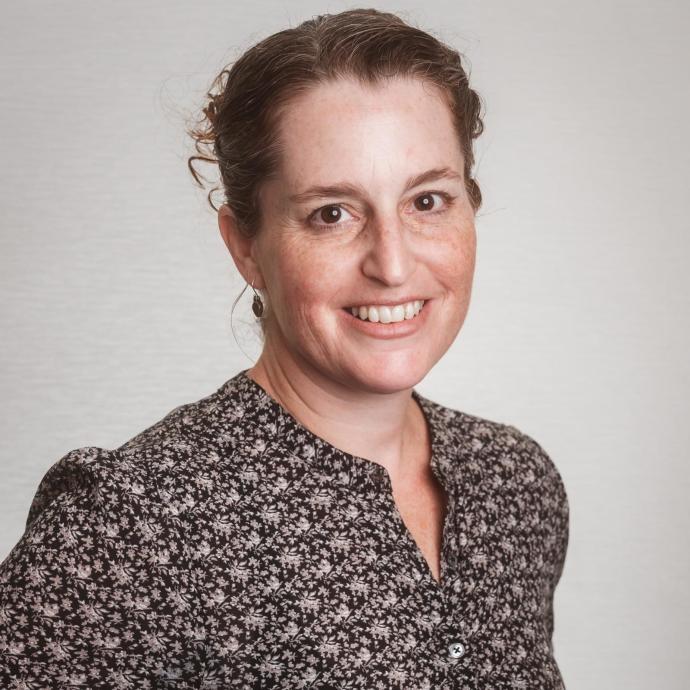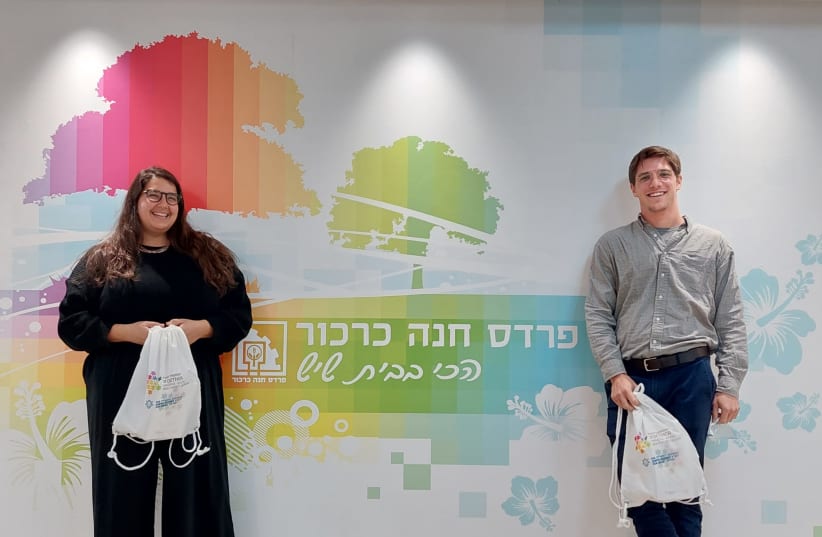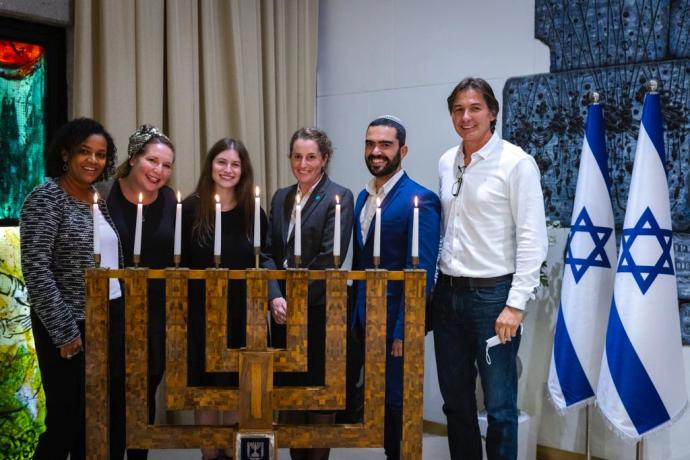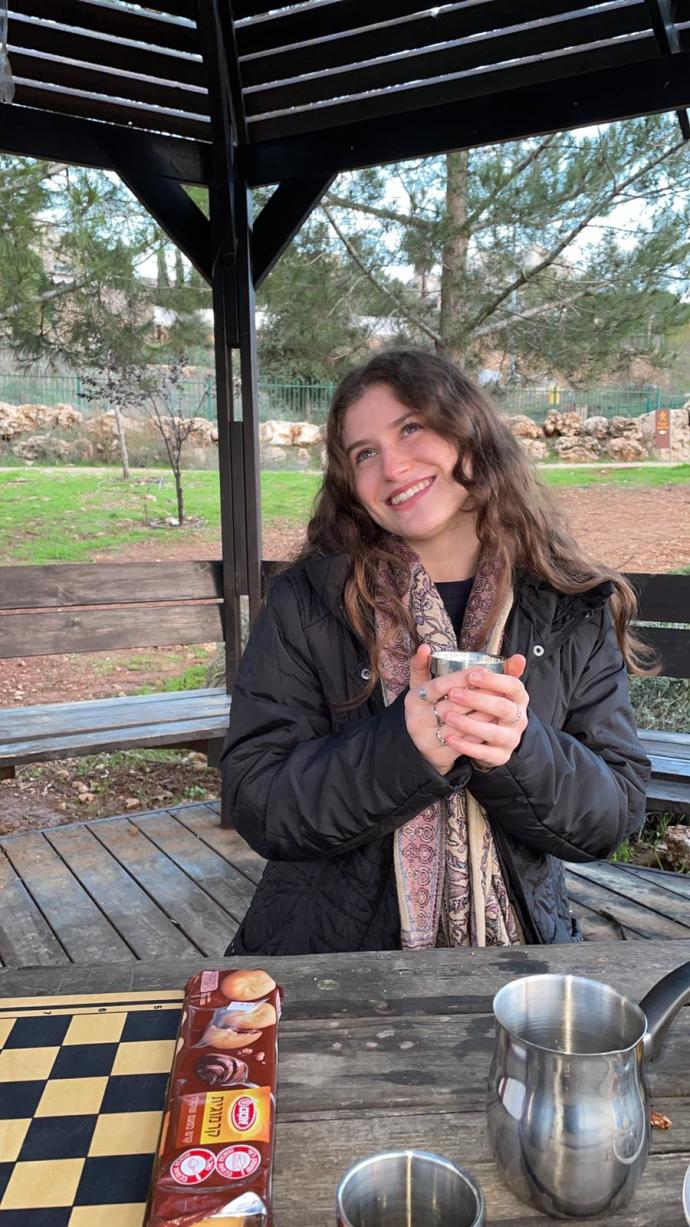“Our role today,” says Shelley Kedar, Director of the Connecting the Jewish People Unit at The Jewish Agency, “is not just to make sure that everyone supports Israel, but also to ensure that we are connected to each other.” For years, she says, there was an imbalance in the relationship between American Jews and Israel. “In bygone days, partnerships were one-sided. Ultimately, the relationship between the Jews of America and the Jews of Israel is based on a sense of shared values and interests, where each side can learn from each other.”
It was for this reason that in 2021, The Jewish Agency initiated the Partnership2Gether Fellows program. The Partnership2Gether program is a network of 43 partnerships between Jewish communities in North America and Israel. Several Jewish federations and partnership steering committees, explains Kedar, developed the idea of sending community participants from North America to Israel to enhance mutual relations between communities and promote Jewish peoplehood. For decades, Jewish Agency shlichim (emissaries) from Israel have traveled to the United States, communicating the spirit and vitality of Israel to Jewish communities. The idea behind the
Partnership2Gether Fellows program, or P2G, as it is known, was to turn the concept on its head – to send “shlichim” from communities in North America to spend time in Israel, meet with young Israelis, and share the vitality – and reality – of their Jewish lives in North America.

Kedar says that the program is a bit of a “counterculture” experience. “It is counterculture for young Jews finishing high school in the United States to spend a semester or a year in Israel before college, and to say to Israelis, ‘Here is a representative from your partnership region who will teach you about the vibrancy of Jewish life in the United States.’”
The P2G Fellows began in 2021 with the support of Masa, a Jewish Agency program that sends thousands of young Jews from around the world to Israel on study, volunteer and career programs, together with the support of Jewish Federations from the Southeast Consortium, consisting of Jewish Federations in an ongoing partnership with the Hadera-Eiron region, the Yokneam-Meggido-Atlanta-St. Louis Partnership and the Eilat-Toronto Partnership, who have also been bringing Jewish Service Fellows to Eilat. Six P2G Fellows arrived in Israel in September to live, work, and teach in Israeli communities for periods ranging from a semester to a year. The results have been eye-opening.
Benny Winkelmann, 24, from Richmond, Virginia, is spending the year as a P2G Fellow in Pardes Hanna, a town of 43,000 located near Haifa. As a child, he benefited from Israeli shlichim who had visited his hometown and brought a taste of Israel to the southeast United States. Winkelmann, in turn, wanted to have the opportunity to return the favor. “I wanted to make an impact,” he says.
“A lot of it was paying it forward. I was a beneficiary for so many of these programs for most of my childhood, and it helped me. The goal of the Partnership2Gether program is more of a modern relationship between Jews in Israel and the United States. The goal of this partnership is to build a relationship where we send our young people to talk about our life experiences and have a person-to-person connection from the Americans to the Israelis. We want to teach them about our way of life – the things that we do that are different. Southeastern Jewry in the US is different than anything they’d heard of in Pardes Hanna,” he says.
Some children in Pardes Hanna, Winkelmann reports, asked him how he could be Jewish if he hadn’t been born in Israel. He teaches English to elementary school, middle school, and high school students in Pardes Hannah and tells them what it means to be a Jew living in America in 2022. “We talk about American culture, interesting things about Jewish America, and we talk about antisemitic events to get our perspective on what it is like for us to see these things,” Winkelmann adds.
Twenty-four-year-old Jasmine Hubara from Charleston, South Carolina, is partnering with Winkelmann in Pardes Hanna. “I thought this could be a unique opportunity to come to Israel and make a difference,” she says. Hubara says that her students have difficulty understanding Jewish life outside Israel. “They don’t understand how we can live in both a secular and a religious world and that it exists outside of Israel. It’s very confusing for them, and it’s fun to watch them figure it out in their heads and try to put the puzzle pieces together.”
Like Winkelmann, Hubara also works with students in the community, and she adds that their relationships have extended to adults in Pardes Hanna as well. “We also have met a lot of partnership families, and now that we know the kids a bit more, we have met many adults and have those same kinds of enlightening discussions with them, but on a deeper level.”
Hubara notes that her experiences in Israel have taught her about different versions of Judaism and other traditions. “Where I grew up in the South,” she says, “most people are Ashkenazi and follow certain practices. When I came to Israel, I started meeting people with traditions and foods and last names from all over the world. It has been really interesting to hear people’s family stories and meet other people, to see the different versions of Judaism that exist.”
In addition to connecting with Israelis in Pardes Hanna, Winkelmann and Hubara have maintained their connections with their communities in the southeastern US. They have been conducting a series on Zoom relating their experiences to the Jewish communities in their hometowns. Hubara has conducted a Rosh Hodesh group on Zoom for women in Israel and the US, along with Prague, another of their partner cities. The program has also hosted different rabbis from the Southeast, who teach and lead discussion groups. “This is another way we try to bridge the gap,” she says.
Eighteen-year-old Zoe Glickman, an Atlanta native, decided to join the P2G Fellows program as part of her gap-year experience before beginning her college studies. “I wanted to live with Israelis and explore the country from an Israeli perspective,” she says. Glickman has spent the year in the northern Israeli town of Yokne’am, which overlooks the Jezreel Valley. She gives English lessons to students and says that she was treated like a celebrity when she arrived. “The students asked me, ‘Are you Jewish? Why are you here, and why did you come to Israel?’” Glickman prepared a presentation for Hanukkah and discussed antisemitism in the United States. “The kids were very surprised,” she reports. “They thought America was a perfect place. Many of them have questions about what it is like to be Jewish in America.” Glickman says that she has tried to show people in Yokne’am what it is like to be Jewish outside of Israel. “I was here during the hostage crisis that took place at the synagogue in Colleyville, Texas. I was very upset about it, and I tried explaining it to my friends, and a lot of them didn’t understand why I was upset, or they didn’t understand what was happening.”
Glickman had initially planned on leaving earlier in the year but extended her stay because she found the interactions with Israelis enjoyable and meaningful. She plans on attending the Georgia Institute of Technology next fall and says that being with Israelis has given her a better perspective and understanding of life in Israel. “If someone will ask me a question about Israel, I will be able to answer that I know Israelis – they are some of my best friends – and I will be able to make that correlation in my brain, which I think will help me when I go to college.”
Jasmine Hubara says that she will remember the warmth, friendliness, and hospitality that she has experienced in Pardes Hana. “All of the people that I know that say antisemitic things or anti-Israel things – I want to help show people in America that Israel is just a normal place with people that want to live normal lives and it’s not the horrible place that a lot of people in America make it out to be. I wish people could see the Israel that I see and the Israel that I love.”
“Building and sustaining meaningful connections have long been foundational to our Jewish Federations,” says Daniel Staffenberg CEO of the Jewish Community Federation of Richmond. “This innovative program has deepened the understanding of both Israelis and Southeast Jews. I am so proud of our Jewish Federations for leading this!”
Shelley Kedar says that next year’s P2G Fellows program will increase to a minimum of 20 shlichim and is optimistic about the program’s future.
Dan Elbaum, Head of The Jewish Agency in North America, adds that, “This is about bringing knowledge and values and Jewish life from America to Israelis as part of an ongoing partnership, and it really enhances mutual understanding.”
Says Shelley Kedar, “The more we advance as a state, the more I hope that we will realize that having strong connections among ourselves as a people and seeing Israel as part of the Jewish people can contribute to national resilience.”
This article was written in cooperation with The Jewish Agency.


